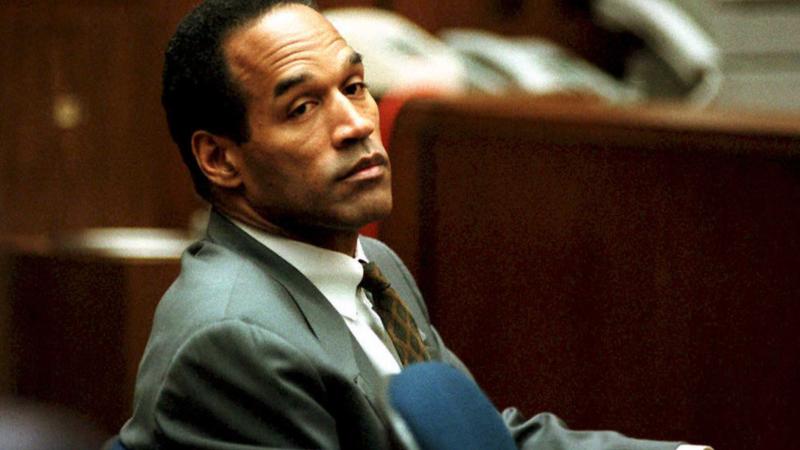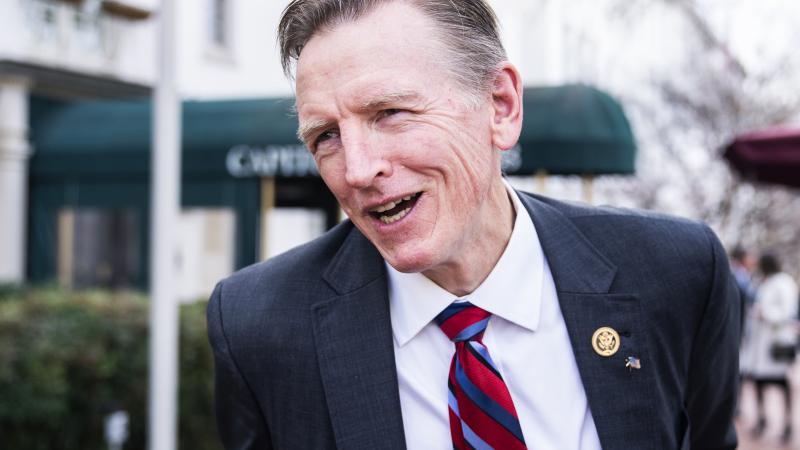'Canceled People': Online database of victims of the new McCarthyism nears 200 listings
Skilled manual laborer's side project draws praise from independent-minded black and feminist thinkers.
When political data scientist David Shor got fired for sharing research that found peaceful protests were more politically effective than violent protests, a skilled manual laborer in the Mountain West had an idea: Why not create a database of so-called cancelations?
Over the next several months he started researching documented instances of cancel culture across the world and soliciting submissions. His project, CanceledPeople.org (and .com), is approaching 200 listings from the U.S., Canada, U.K., Germany, France, Indonesia and Australia.
The website got a boost of attention earlier this month when Christina Hoff Sommers, the American Enterprise Institute scholar and "Factual Feminist" YouTube host, tweeted about the "well-sourced database" of cancelations.
In an interview with Just the News, the creator pulled back the veil on the project. (He declined to identify himself, except for his geography and field of work, but he did provide screenshots of account records verifying his ownership and operation of the site.)
"Canceled People is not part of a larger organization," he wrote in an email last week. "It's really just a part-time project of mine, with my girlfriend helping out occasionally." Neither is an academic, as might be guessed from the project's research protocols, which lay out the rules for adding and removing people from public view.
The tweet by Sommers triggered 75 submissions, which each take 20-30 minutes to review, the creator said.
"Usually it's fairly clear whether or not they belong there, but some cases are tough," he said. "It would be good to have a panel of experts to discuss and vote on those cases.”
The website's About page says its purpose is "to better understand cancel culture itself as a phenomenon," including how it's affecting "societal norms around free speech that enable democracy to function and flourish." CanceledPeople.org is intended as a resource especially for researchers to "explore and draw their own conclusions."
'Window of acceptable speech seemed to have narrowed drastically overnight'
Before submitting examples of cancelations, users are instructed to read CanceledPeople.org's definition.
Victims must have faced "a coordinated effort to shame them and destroy their reputation," especially targeting their personal or professional relationships.
The cancelation must have succeeded: They were demoted, forced to resign or lost a job, or suffered lost professional or financial opportunities, as a result of "reasonable expression" that was not illegal. Exceptions include Holocaust denial and racial slurs intended to "wound."
Each listing includes a victim's name, position, organization, action against them, date and country, as well as a few sentences describing the incident and a source, typically a news article. Race-related expression appears to be the most common reason for cancelation.
The most recent entry is Kieran Bhattacharya, a University of Virginia medical student who says he was suspended in 2018 for disagreeing with the concept of microaggressions. A federal judge allowed his First Amendment lawsuit to continue last month.
Several listings involve high-profile media figures such as former NBC anchor Megyn Kelly, former New York magazine columnist Andrew Sullivan and former Bon Appetit editor Adam Rapaport. Many are academics, such as the University of Pennsylvania's Amy Wax, UCLA's Gordon Klein and Nobel laureate Tim Hunt of University College London.
But others are far from any spotlight. A U.K. welder was fired for flying a "White Lives Matter" banner at a soccer game. A Michigan teacher said he was fired for pro-Donald Trump tweets, including that schools "must reopen" regardless of COVID-19.
A few incidents go far beyond cancelation. A teacher was "beheaded" for showing students caricatures of the Prophet Muhammad from French satirical publication Charlie Hebdo. The governor of Jakarta was imprisoned for two years following manipulated video of his remarks about the Koran.
CanceledPeople.org's creator told Just the News that he was alarmed by people getting fired or publicly shamed for comments "perceived as critical of the Black Lives Matter organization or movement" after George Floyd's death in Minneapolis.
"The window of acceptable speech seemed to have narrowed drastically overnight," he said. Loaded terms like "racist" and "white supremacy" were applied to "anything that didn't reaffirm a single narrative." For example, Shor, the data scientist, simply noted that President Nixon got elected in part due to "violence following the assassination of MLK."
At the same time last June, media organizations were denying cancel culture even existed. The creator decided to compile a database to show the real-world results of cancel culture and track whether the phenomenon "was getting better or worse over time."
The domains were registered July 9, and the creator launched the website July 28 after writing about 20 entries himself. At that point he contacted some academics and public figures who had expressed concerns about cancel culture, drawing tweets from two black professors — Glenn Loury at Brown University and Wilfred Reilly at Kentucky State University.
"The fact that only black academics were initially willing to promote" the website could be coincidental, the creator said, but he theorized that non-blacks were afraid to "advocate for free speech" after Floyd's death.
Some listings available to 'select researchers only'
The release notes for the website claim it received a flood of submissions the day it launched and had roughly doubled in listings in the first 10 days. It also explained common reasons why submissions were rejected, such as insufficient "legitimate" reporting. The notes page hasn't been updated since August.
The database's rules for inclusion and removal were not informed by the practices of institutional review boards, which scrutinize academic research proposals, the creator told Just the News.
"We do not want to inadvertently doxx someone or create a database that causes more harm than good by drawing attention to an episode in someone's life that they do not want to be easily found online," the About page says.
It only adds those whose cancelations have drawn "significant publicity" or who have already "demonstrated some desire to tell their story." For other incidents, its moderators will reach out to the canceled party for consent.
Victims can remove themselves from public view — but not the database itself — by contacting the moderators, who will keep them visible to "select researchers only."
About two-thirds of entries at this point have come from submissions, the creator said. He added the rest after learning about them from podcasts, such as those by Megyn Kelly, conservative pundit Ben Shapiro and black writer Coleman Hughes, who appeared on Forbes' most recent 30 Under 30 list.
He's not sure how much time to spend on the database because "site traffic fluctuates a lot." A donation page lays out what the creator would do with more money, including adding more entries, "graphical analysis," better design and "secure archive" of sources.
















